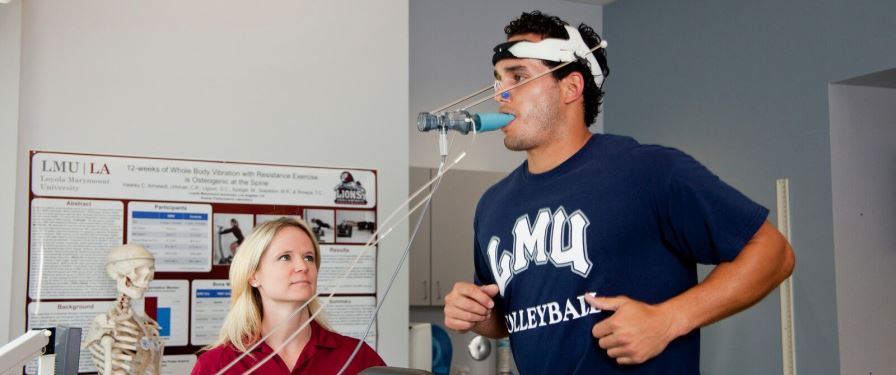Health and Human Sciences
What is Health and Human Sciences?
The Health and Human Sciences (HHSC) major provides students an opportunity to learn about the human body and health. In order to be prepared for such graduate studies as physical or occupational therapy, nursing, physician assistant, public health, exercise science, entry-level graduate programs in athletic training, and other health professions. Students in the HHSC major complete coursework in a core group of sciences (i.e. Human Anatomy and Physiology, General Chemistry, Biology, Statistics, Physics, etc.) and chosen electives that further diversify student understanding of the human body and condition. HHSC courses often require practical examinations, which require students to successfully perform physical skills, frequently on another person. Our laboratories provide hands on experience and state-of-the-art medical equipment necessary for students to excel and succeed in the health sciences. In addition to classes at the university, HHSC major students will engage in the local community via internships within the allied health field.
What do HHSc majors do?
HHSC majors understand the human body's relationship to health and wellness through science, theory and application. Students are afforded the ability to apply new knowledge via laboratory activities, research with faculty, community-based courses, and internship experiences. HHSC majors demonstrate interpersonal skills required to work cooperatively with diverse individuals and groups on issues related to the human condition while integrating spiritual and ethical values in their education. With our location in the diverse city of Los Angeles, our students are exposed to the wide variety of healthcare needs of athletes, older adults, cancer survivors, and more.
Is this the right major for you?
You might be a health and human science major if you:
- Love to study the human body and how it works
- Want to understand how to prevent and treat musculoskeletal injuries
- Have an interest in understanding chronic disease
- Want to understand the details of how exercise and nutrition promote health
- Are good at science and want to use your talents to help other people
- Enjoy working closely with other people
- Like to learn through experience
About our faculty
Our faculty members are experts in concussions, musculoskeletal rehabilitation, therapeutic modalities in athletics, development of peak bone mass, prevention of osteoporosis, use of exercise to improve health, muscle physiology, and epidemiology of cancer and chronic disease.
Our faculty has previously worked with athletes as Certified Athletic Trainers, consulted on sports nutrition, worked with elite athletes, and provided exercise prescription for people with diverse needs. They are educational consultants for publishers of nutrition and anatomical sciences material and are active researchers and writers who have authored numerous papers in the respected journals of our disciplines.
About our students and graduates
The majority of HHSC majors who graduate from LMU are interested in becoming allied health professionals and plan to pursue graduate study. The HHSC degree also prepares students well for careers in research, exercise science, clinical exercise physiology, cardiac rehabilitation, public health, fitness, and wellness. HHSC students often work in health clinics, hospitals, and other health-related business environments.
Representative courses
Our courses include:
- Human anatomy and physiology
- Nutrition
- Upper and lower extremity evaluation
- Therapeutic modalities and rehabilitation
- Exercise physiology
- Public health
- Chronic disease and injury epidemiology
- Kinesiology and Biomechanics
- Allied health internship
More resources links
Department of HHSC at LMU
LMU Human Performance Laboratory
American College of Sports Medicine
National Athletic Trainers’ Association
CA Dept of Public Health
American Association for Cancer Research
